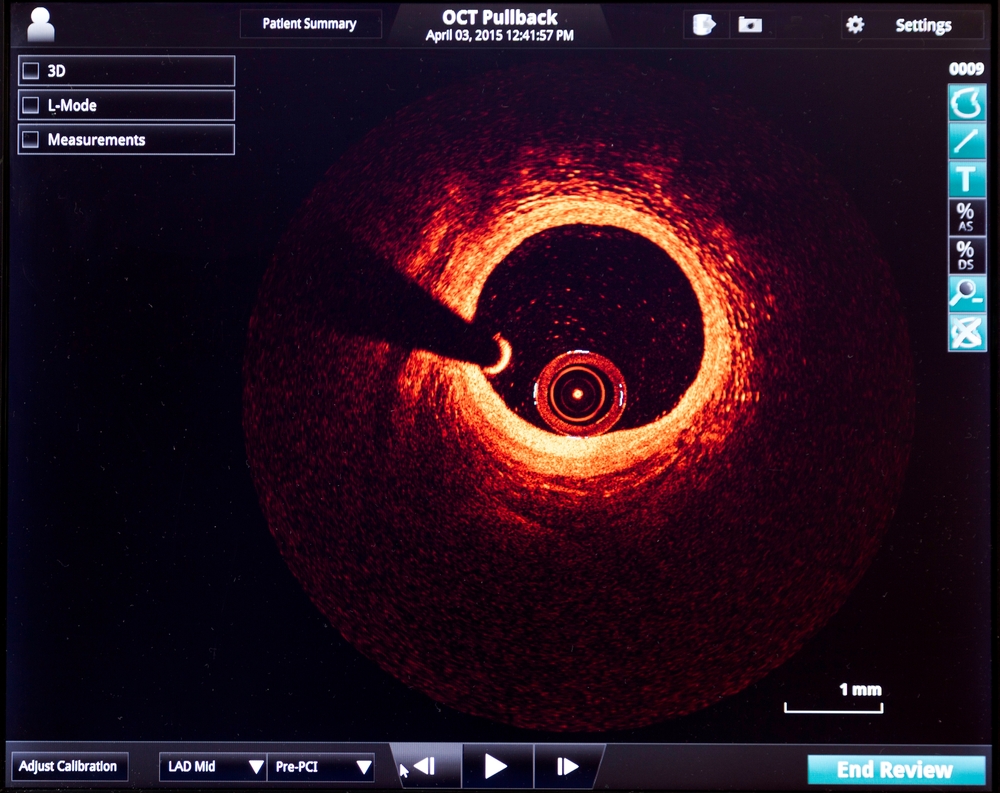Newsletter Signup - Under Article / In Page
"*" indicates required fields
Research suggests that the enzyme phosphoenolpyruvate carboxykinase 2 (PCK2) and its gene play a role in the development of vascular injury and atherosclerosis.
Atherosclerosis is a deadly disease; research suggests that proliferation of vascular smooth muscle cells (VSMCs) and formation of a neointimal layer along the inner lining of arteries play a major role in the progression of this disease.
However, the factors that control these processes were unknown – until now. Researchers from Korea report an enzyme whose inhibition attenuates VSMC proliferation. Targeting this enzyme could thus present a new avenue for the treatment of atherosclerosis.
Atherosclerosis—the build-up of plaques, or atheromas, along the inner lining of arteries—can damage arteries and lead to serious complications like cardiac arrest, stroke, or even death if left untreated.
It is treated by inserting stents to widen the arteries. However, these are not always successful in the long term. Drug-coated balloons, which provide the dual benefit of widening an artery while locally delivering drugs to prevent formation of the neointima (also known as neointimal hyperplasia or NIH) have been used, but there is still a need for better therapies.
The group of researchers from Korea, led by Yun Hak Kim of Pusan National University, looked for answers. Their study, which was published in the International Journal of Biological Sciences, describes how a particular gene—phosphoenolpyruvate carboxykinase 2 (PCK2)—and the enzyme that it encodes control the proliferation of VSMCs and development of NIH in samples of vascular injury and atheromas. Previous studies have reported that PCK2 is involved in glucose metabolism and promotes tumor growth and cell proliferation.
Findings
The first aim was to find genes differentially expressed in carotid atheromas. Not wanting to limit their findings, they started with a hypothesis-free approach, examining diseased and healthy gene profiles from the GSE (Gene Expression Omnibus) series.
Kim said: “We found six genes that were differentially expressed in disease, three of which were upregulated. The expression of two of these—including PCK2—was associated with NIH in mouse models of vascular injury. Moreover, inhibition of PCK2 reduced the proliferation of VSMCs.”
Further mechanistic experiments revealed two signaling pathways which were associated with PCK2. These were the PI3K-Akt and FoxO pathways. Akt, a protein, activates cell growth; FoxO aids the expression of genes during cell proliferation. It is via these pathways that PCK2 and its gene regulate VSMC proliferation after vascular injury, the team reported.
Kim added: “VSMCs in human atheromas have a very high expression of PCK2. And given the findings of our study, we believe this enzyme can also be targeted to prevent arterial re-stenosis after stent placement and improve outcomes of vascular injury treatment.”
Partnering 2030: The Biotech Perspective 2023







